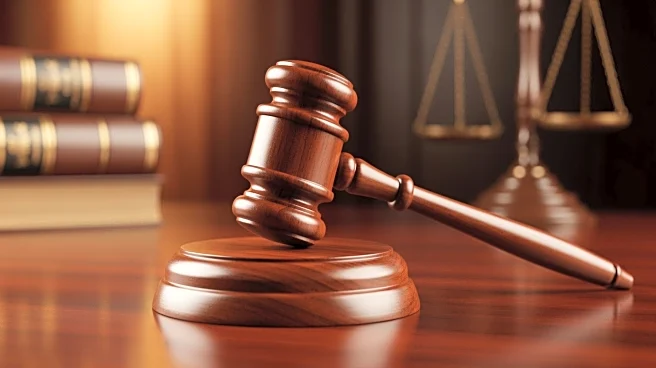What's Happening?
President Trump has announced his intention to nominate Nicholas Ganjei, a former aide to Senator Ted Cruz, for a federal judgeship in the Southern District of Texas. Ganjei, currently serving as a US
attorney, has a background in prosecuting organized crime, immigration, and white-collar cases. Trump also plans to nominate Aaron Peterson for a judgeship in Alaska and David Clay Fowlkes in Arkansas. These nominations follow the Senate Judiciary Committee's receipt of nomination disclosures, marking a departure from previous administrations' practices.
Why It's Important?
The nomination of Ganjei and others reflects President Trump's ongoing influence in shaping the federal judiciary. These appointments could impact legal interpretations and decisions on key issues such as immigration and crime. The nominations may also affect the balance of power within the judiciary, with potential implications for future legal and political developments. Trump's choices highlight the importance of judicial appointments in advancing specific policy agendas and shaping the legal landscape.
What's Next?
The Senate Judiciary Committee will review the nominees' disclosures, including their biographical and career details, as part of the vetting process. The committee's decisions will determine whether the nominees proceed to confirmation hearings. The nominations may prompt discussions on judicial independence and the role of political affiliations in judicial appointments. Stakeholders, including legal experts and political leaders, may weigh in on the implications of these appointments for the judiciary and broader legal system.
Beyond the Headlines
The nominations raise questions about the ethical considerations of judicial appointments and the influence of political connections in the process. The focus on nominees' backgrounds and affiliations underscores the importance of transparency and accountability in judicial selections. The situation may lead to broader debates on the role of the judiciary in upholding democratic principles and ensuring impartiality in legal proceedings.










